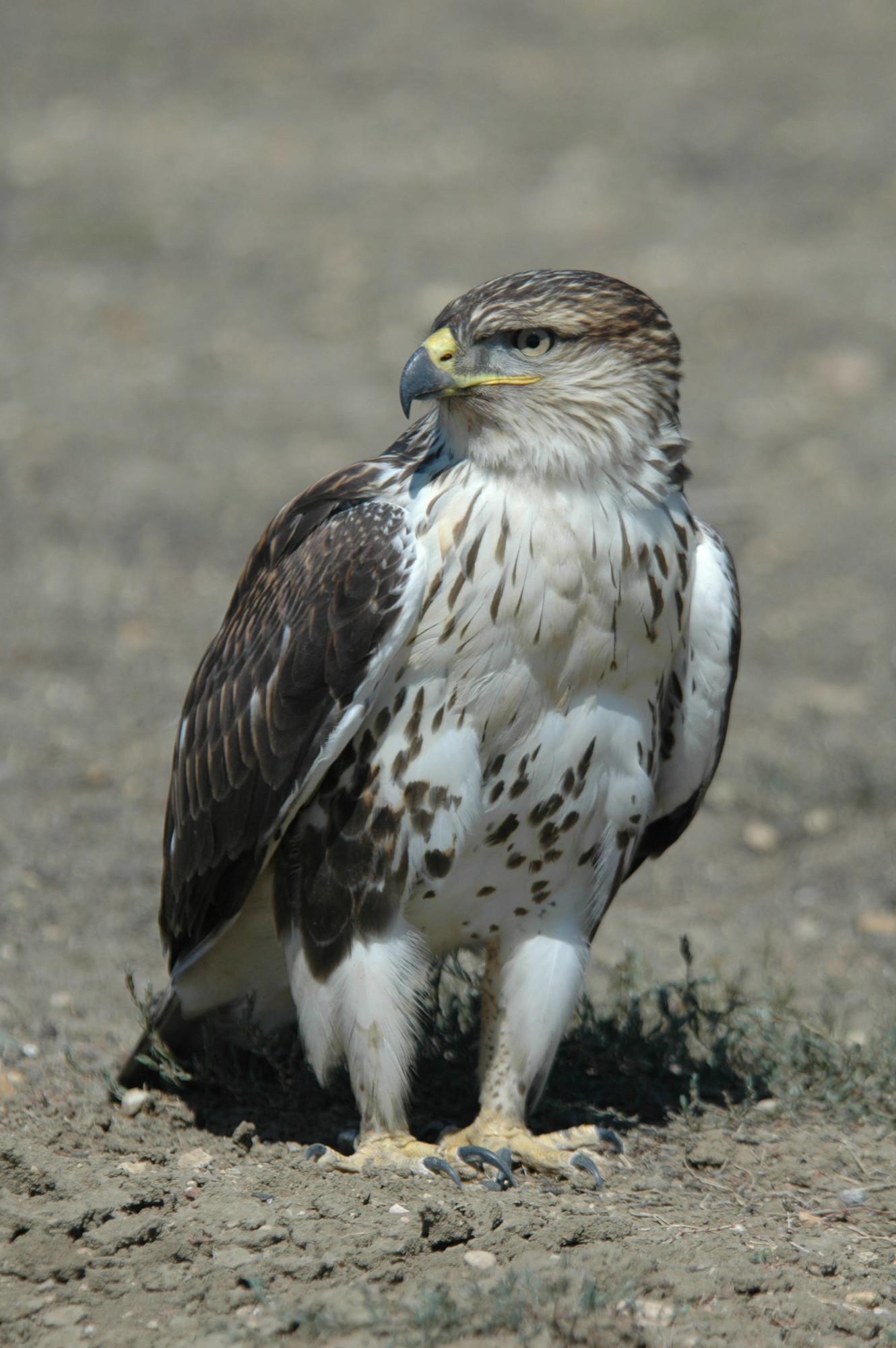Photos
Click to display full size or right-click to save to your device.
ARCHIVED NEWS RELEASE
This document is provided for archival purposes only. Archived documents
do not reflect current WDFW regulations or policy and may contain factual
inaccuracies.
News release Jan. 12, 2021
Taylor Cotten (360) 902-2505
Jason Wettstein (360) 704-0258
OLYMPIA – The Washington Department of Fish and Wildlife (WDFW) is seeking public input on its draft periodic status review for the Ferruginous Hawk. The department is recommending a change from threatened to endangered status for Ferruginous Hawks in Washington.
Breeding populations of Ferruginous Hawks have been in sustained decline in Washington since 1974, with a decreasing trend in adult pairs at nesting areas and decreased reproductive success.
“Ferruginous Hawks have been in trouble for decades. Factors involved include loss and degradation of nesting and foraging habitat, and associated reductions to populations of their primary prey species,” said Taylor Cotten, Conservation Assessment Section Manager at WDFW.
The Ferruginous Hawk, the largest hawk in North America, is an open-country species that inhabits grasslands and shrub-steppe in eastern Washington. Conversion and degradation of native grasslands and arid shrublands has resulted in the loss of nesting and foraging habitat for the species.
The draft periodic status review for the Ferruginous Hawk is available for review at WDFW’s publications webpage. The public can provide comments on the drafts through April 12, 2021.
Written comments on the review and recommendation can be submitted via email to TandEpubliccom@dfw.wa.gov or by mail to Taylor Cotten, Washington Department of Fish and Wildlife, P.O. Box 43141, Olympia, WA 98504-3200.
WDFW prepares recovery plans to guide conservation and recovery efforts and periodically reviews the status of protected species in the state.
WDFW is the state agency tasked with preserving, protecting and perpetuating fish, wildlife and ecosystems, while providing sustainable fishing, hunting and other outdoor recreation opportunities. The agency works to keep common species common and restore species of greatest conservation need.
